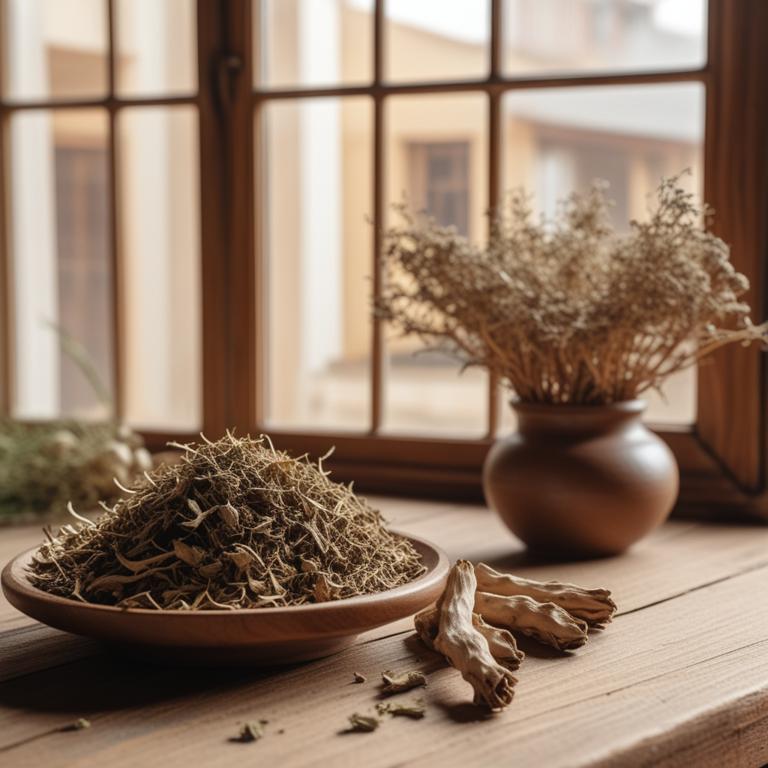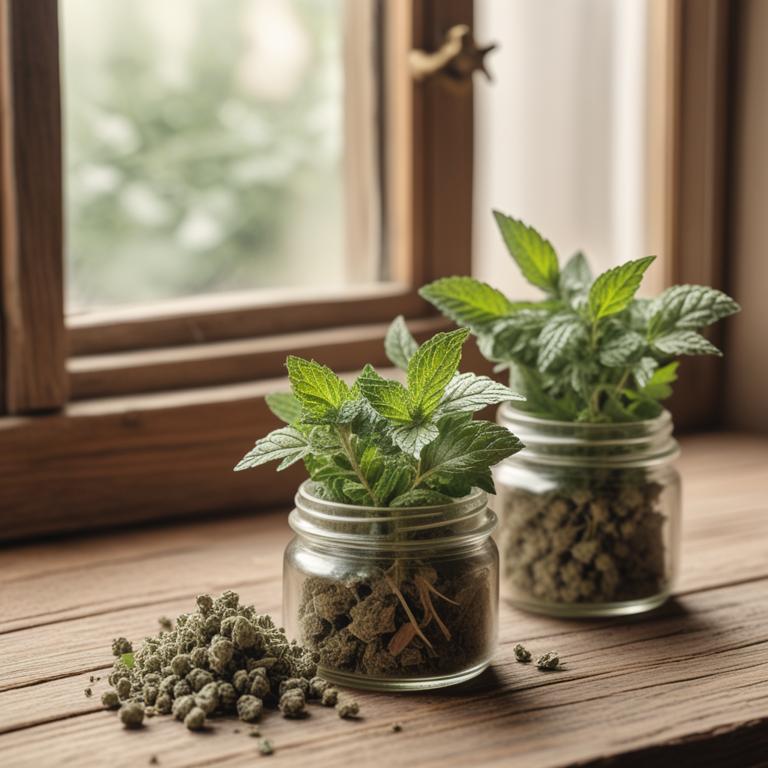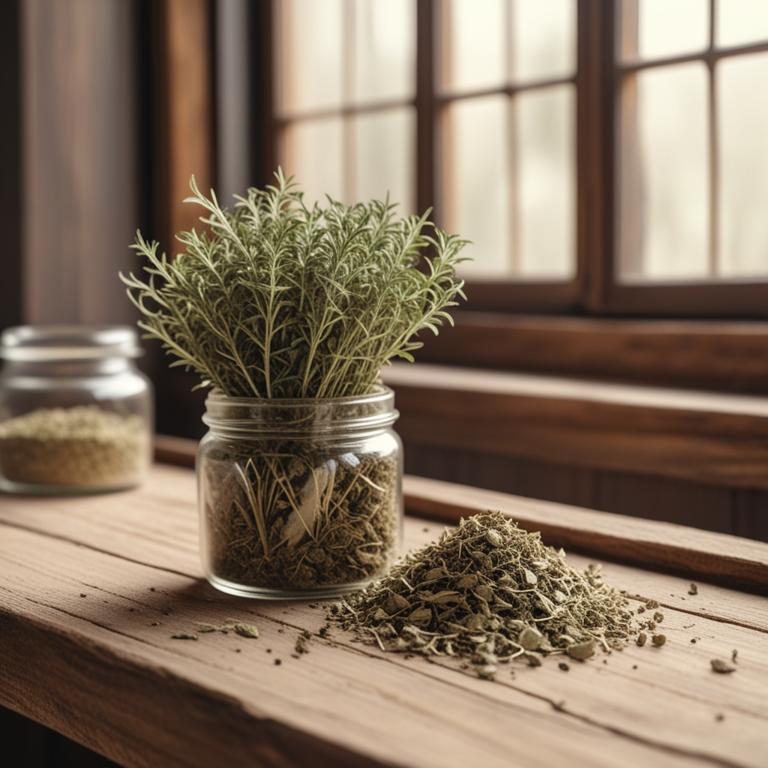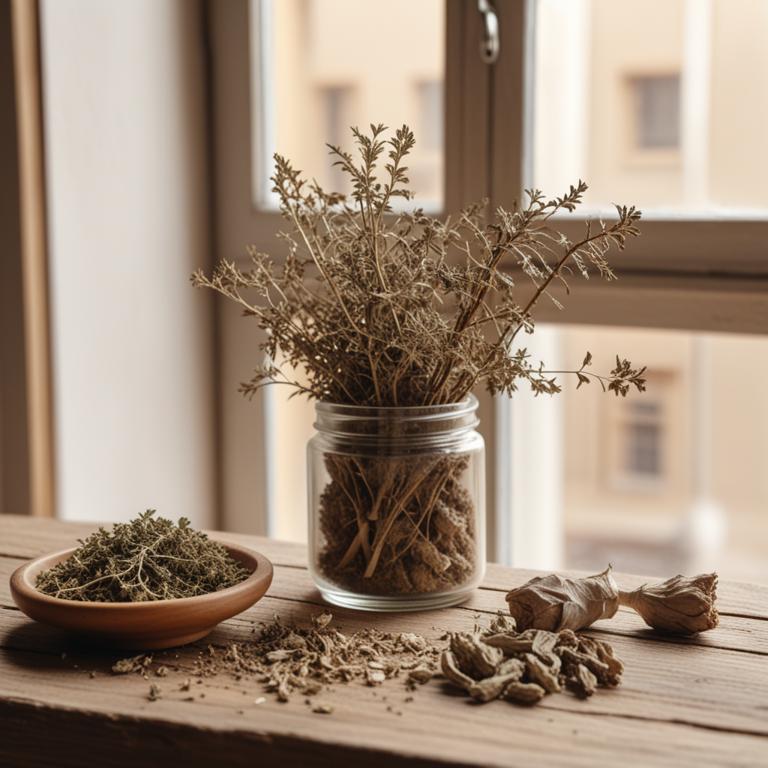Updated: Dec 1, 2024
Cirrhosis Causes and Prevention with Medicinal Herbs and Herbs
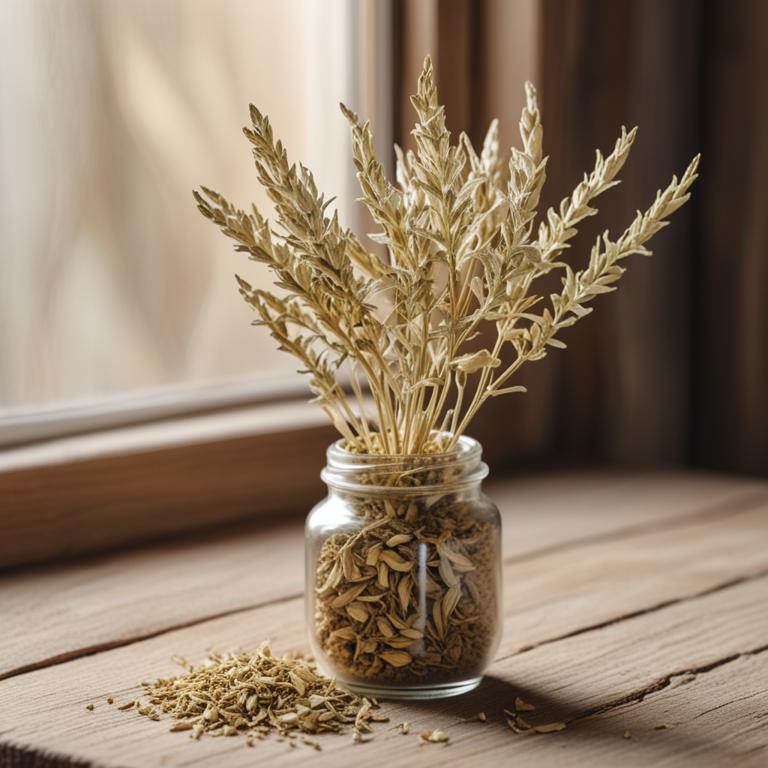
Cirrhosis is a serious condition where the liver becomes scarred and can't work properly.
It's like having a damaged filter that can't clean your blood, making you feel tired, weak, and sick all the time. You might experience pain in your abdomen, itchy skin, and swelling in your legs. Cirrhosis can be caused by drinking too much alcohol, taking too many painkillers, or having a viral infection like hepatitis. If you have cirrhosis, it can be challenging to live your daily life. You might need to give up your favorite foods, avoid certain activities, and take medication to manage your symptoms. But there are some herbal remedies that might help.
Some herbs that have been studied for their potential to help with cirrhosis include milk thistle, dandelion root, and turmeric. Milk thistle is thought to protect the liver from damage and promote healing. Dandelion root is believed to help remove toxins from the blood and support liver function. Turmeric contains a compound called curcumin, which has anti-inflammatory properties that might help reduce liver inflammation. To use these herbs, you can try drinking teas made from them, taking supplements in capsule or tablet form, or applying them topically as creams or ointments. Some people also use herbal combinations, like a blend of milk thistle and turmeric, to get the benefits of multiple herbs at once. Keep in mind that while these herbs might be helpful, they shouldn't replace medical treatment.
Always talk to your doctor before trying any new remedies, especially if you're already taking medication or have a serious medical condition.
Table of Contents
What causes cirrhosis in the body?
The main causes of cirrhosis are a combination of several liver diseases and habits that lead to scarring and damage.
Alcoholism is one of the leading causes of cirrhosis. When people consume too much alcohol, it can cause inflammation in the liver, leading to scarring and damage over time. This is because the liver tries to filter out the toxins from the alcohol, but in the process, it gets damaged. Hepatitis B and Hepatitis C are viral infections that can cause cirrhosis. These viruses attack the liver cells, leading to inflammation and scarring. If left untreated, these viruses can lead to chronic liver damage, eventually causing cirrhosis.
Hepatitis B is usually spread through bodily fluids like blood and semen, while Hepatitis C is often spread through blood transfusions or shared needles. Nonalcoholic Steatohepatitis (NASH) is another cause of cirrhosis. It's a condition where the liver becomes inflamed due to a buildup of fat. This can happen even if you don't drink excessively, and it's often associated with obesity and diabetes. When the liver becomes inflamed, it can lead to scarring and damage. Autoimmune Hepatitis is a rare condition where the immune system attacks the liver cells, leading to inflammation and scarring. This can happen in people who have other autoimmune disorders, like type 1 diabetes or rheumatoid arthritis.
In these cases, the immune system mistakenly attacks the liver cells, causing damage and scarring over time.
What advantages can be gained from using herbs to help with cirrhosis?
Using herbs to treat cirrhosis can be very beneficial.
One of the main advantages is that they can help reduce inflammation and swelling in the liver, which can slow down the progression of the disease. These herbs can also improve liver function by increasing the production of liver cells and improving the flow of blood through the liver.
In addition, they can help reduce symptoms such as fatigue, nausea, and abdominal swelling that often come with cirrhosis. Some herbs can also help improve the body's ability to detoxify itself, which can be helpful in removing toxins that can damage the liver. Furthermore, using herbs can be a natural and non-invasive way to treat cirrhosis, which can be appealing to people who want to avoid surgery or medications with harsh side effects.
By supporting the liver's natural healing processes, these herbs can help people with cirrhosis manage their symptoms and improve their quality of life.
Which medicinal herbs are most effective in treating cirrhosis?
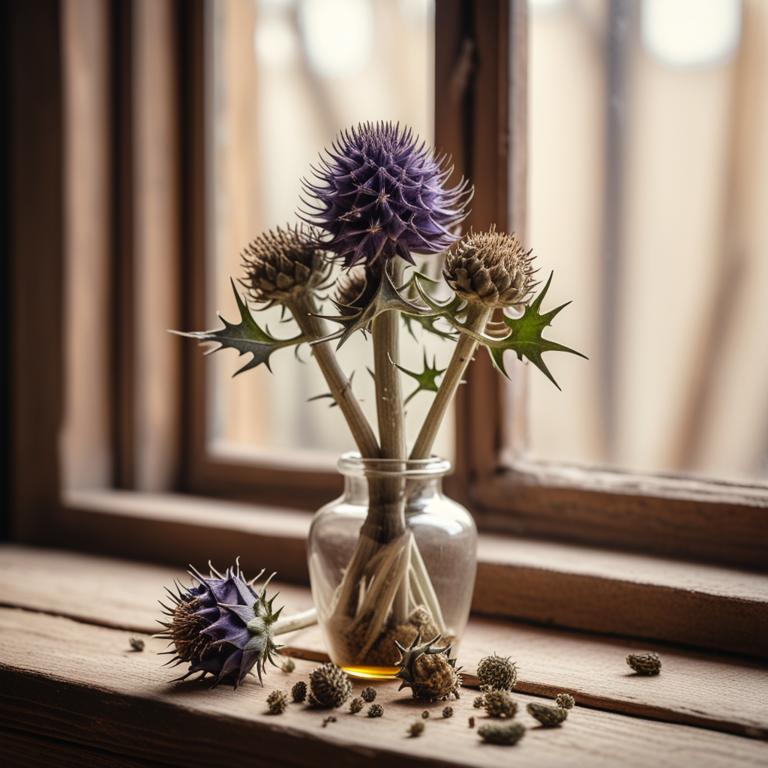
Herbs can be beneficial in managing cirrhosis, a condition where liver cells are damaged.
Silybum marianum, also known as milk thistle, is often used as it contains a compound called silymarin, which has been shown to protect the liver from damage and promote the growth of new liver cells. Glycyrrhiza glabra, or licorice root, contains a compound called glycyrrhizin, which has anti-inflammatory properties and can help reduce liver inflammation and scarring. This can help slow down the progression of cirrhosis. Curcuma longa, or turmeric, contains a compound called curcumin, which has powerful antioxidant properties that can help reduce inflammation and oxidative stress in the liver.
This can help reduce liver damage and promote healing. Taraxacum officinale, or dandelion, contains compounds that can help stimulate the liver and improve its function. It can also help remove toxins from the body, which can help reduce liver damage. Phyllanthus amarus, or bhumyamalaki, is traditionally used in Ayurvedic medicine to treat liver diseases, including cirrhosis.
It's believed to have antioxidant and anti-inflammatory properties that can help protect the liver and promote healing.
What are the most commonly used herbal supplements for the treatment of cirrhosis?
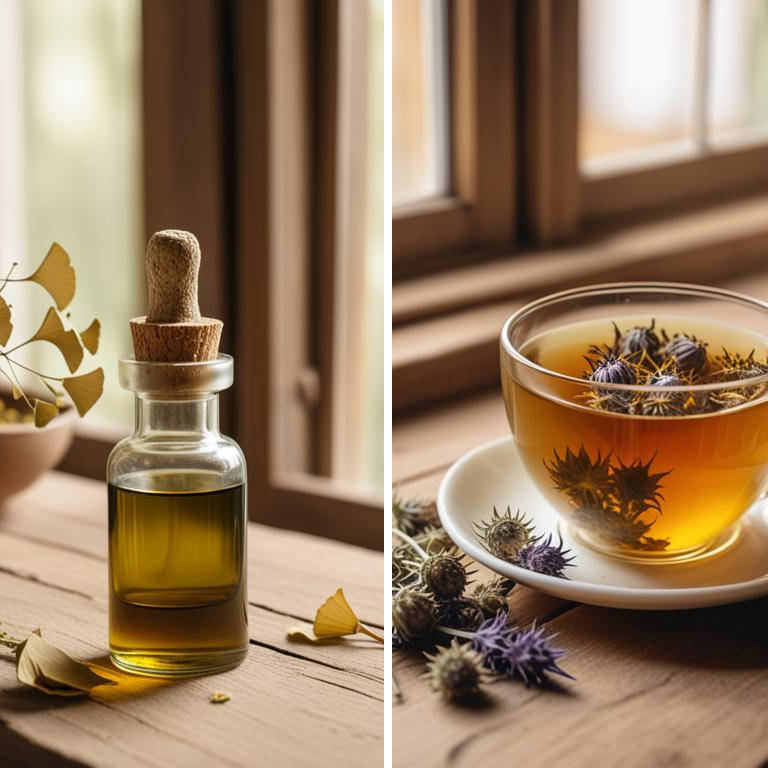
Herbal preparations can be a helpful addition to the treatment plan for people with cirrhosis.
A decoction is a liquid extract made by boiling herbs in water, which can be easy to digest and help soothe the liver. Some herbs like milk thistle and dandelion root have been shown to protect liver cells and improve liver function. A tincture is a concentrated liquid extract made by soaking herbs in a solvent, which can be added to water or taken directly. Tinctures of herbs like turmeric and ginger have anti-inflammatory properties that can help reduce liver inflammation.
Capsules are another form of herbal preparation that contain dried and powdered herbs. Capsules made from herbs like licorice root and schisandra have been used to improve liver function and reduce fatigue. An infusion is made by steeping herbs in hot water, and can be a gentle way to get the benefits of herbs like peppermint and chamomile. Herbal tea is a popular way to get the benefits of herbs, and can be made by steeping herbs in hot water like an infusion.
Some herbal teas like green tea and licorice root tea have been shown to improve liver function and reduce inflammation.
Additional Resources:
What herbs may exacerbate cirrhosis?
If you have cirrhosis, it's essential to be cautious with certain herbs that can interact with your liver condition or worsen symptoms.
Ginkgo biloba, for instance, can increase the risk of bleeding due to its thinning effect on blood, which is particularly concerning for people with liver problems. Valeriana officinalis, also known as valerian root, may not be a big issue, but when combined with medications, it can affect liver function and increase the risk of liver damage. Digitalis purpurea, or foxglove, contains a toxic compound called digoxin, which can be deadly if taken in excessive amounts.
People with cirrhosis are more susceptible to the toxic effects of digoxin, making it a herb to avoid. Taxus baccata, or yew, contains a toxic compound called taxine, which can cause liver damage and failure, especially in individuals with pre-existing liver conditions. Aconitum napellus, or monk's hood, is highly toxic and can cause liver and kidney damage, as well as other serious health problems.
While these herbs may have medicinal properties, it's crucial to consult with your healthcare provider before using them, especially if you have cirrhosis.
FAQ
Are there any specific herbs that can prevent cirrhosis?
Grapefruit seed extract and milk thistle have been studied for their potential to help prevent cirrhosis.
The seed extract contains compounds that may protect the liver from damage, while milk thistle's silymarin may help repair liver cells and improve liver function.
These natural compounds may help support liver health.
Is it safe to use herbal remedies for cirrhosis during pregnancy?
Using herbal remedies for cirrhosis during pregnancy is not recommended.
Some herbs can harm the unborn baby or cause complications. The liver is already working hard to repair itself, and adding unknown substances can make things worse.
It's best to stick with a doctor-approved treatment plan to ensure a healthy pregnancy.
Are there any herbs that can reduce the frequency of cirrhosis?
Research suggests that certain herbs may help reduce the frequency of cirrhosis.
For example, milk thistle is thought to protect the liver from damage. Silymarin, a compound found in milk thistle, may help repair liver cells and improve liver function.
More studies are needed to confirm these findings, but some evidence suggests that these herbs may have a positive effect.
Related Articles
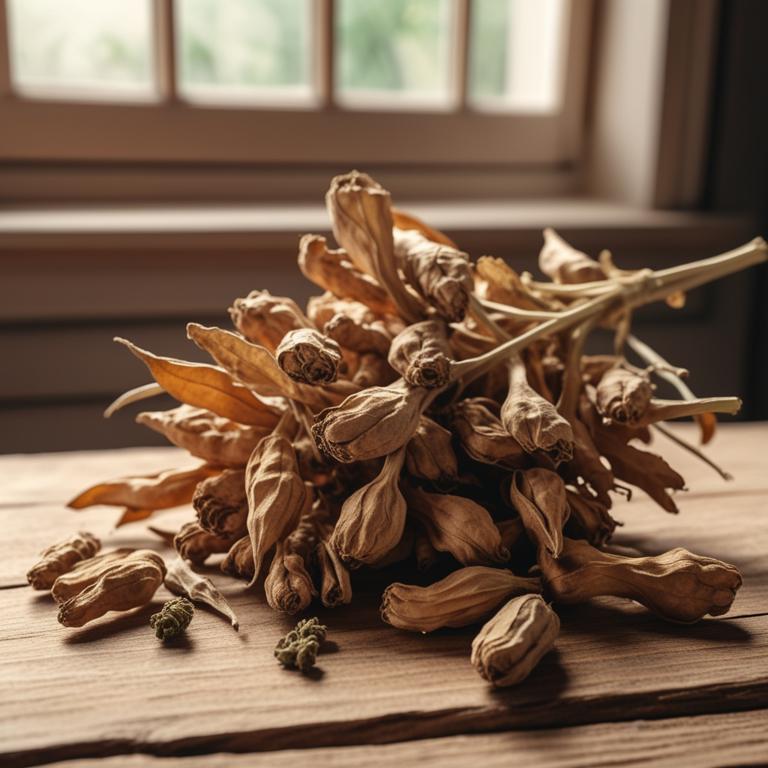
Indigestion Relief with Medicinal Herbs and Herbal Preparations: A Comprehensive Guide
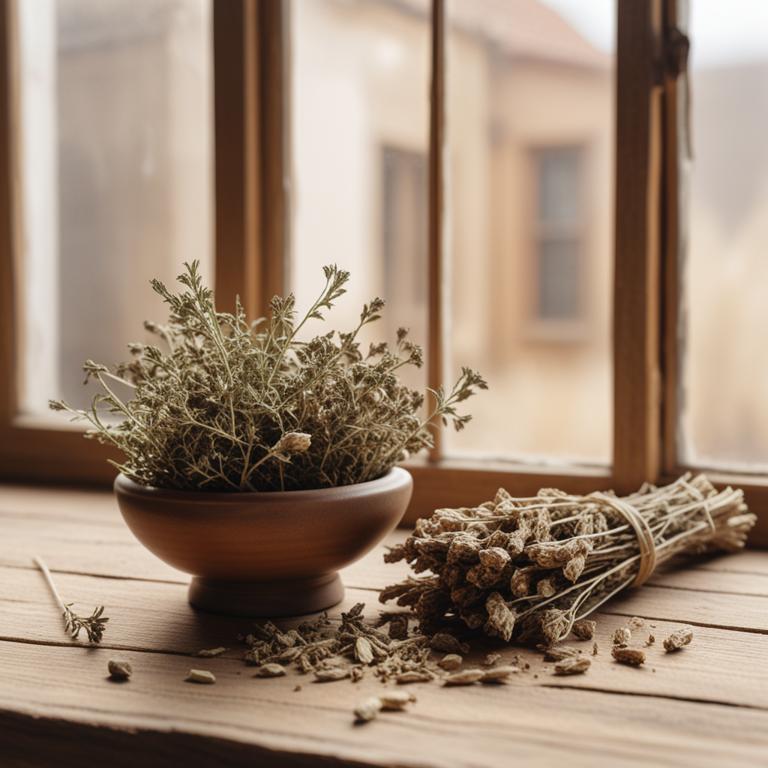
Stomach Cramps: Effective Herbal Preparations and Medicinal Plants

Hemorrhoids Causes, Symptoms, and Natural Herbal Preparations
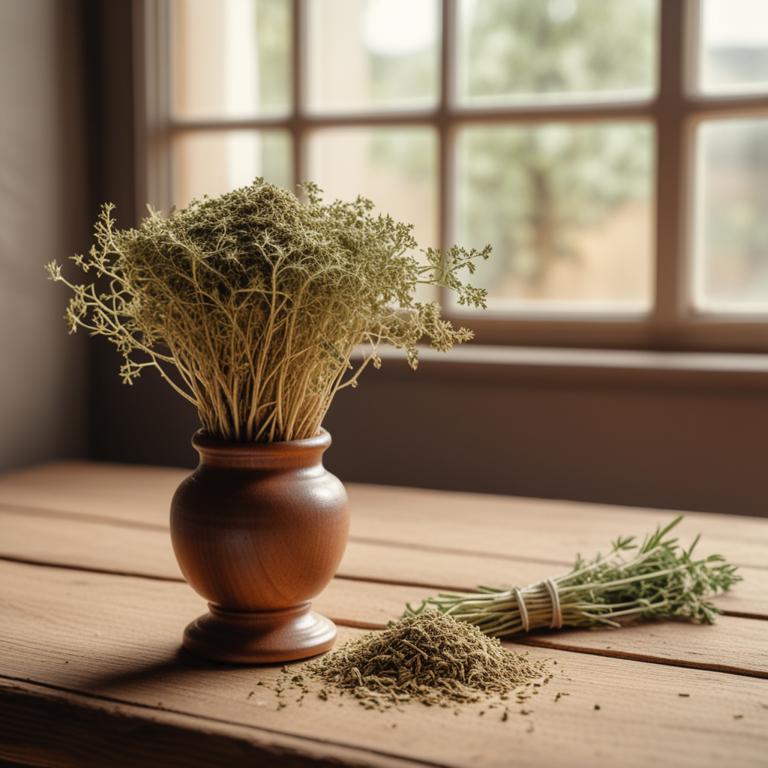
Burping Causes and Herbal Preparations for Relief
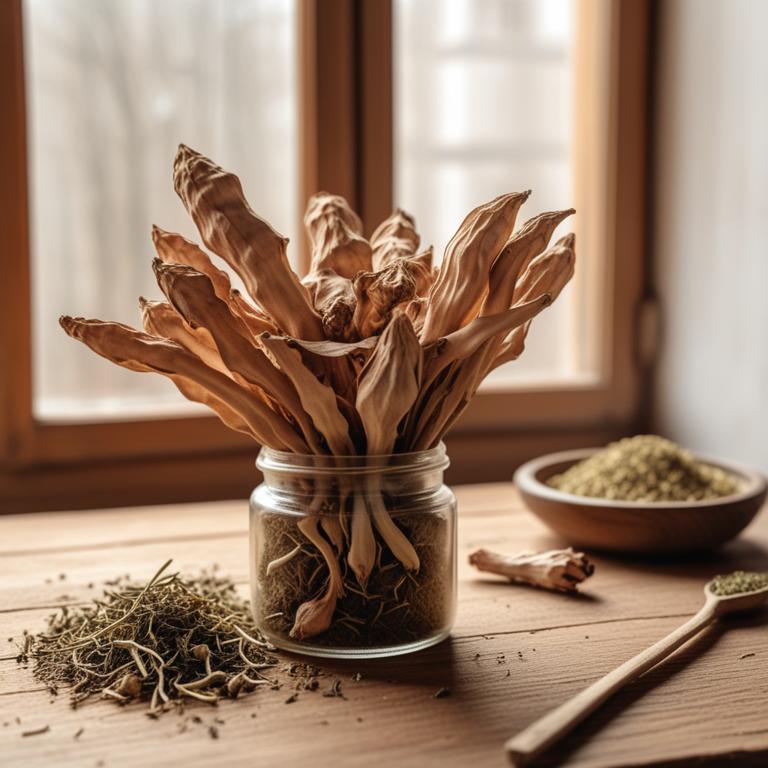
Stomach Pain Relief: Understanding Causes and Using Herbal Preparations
